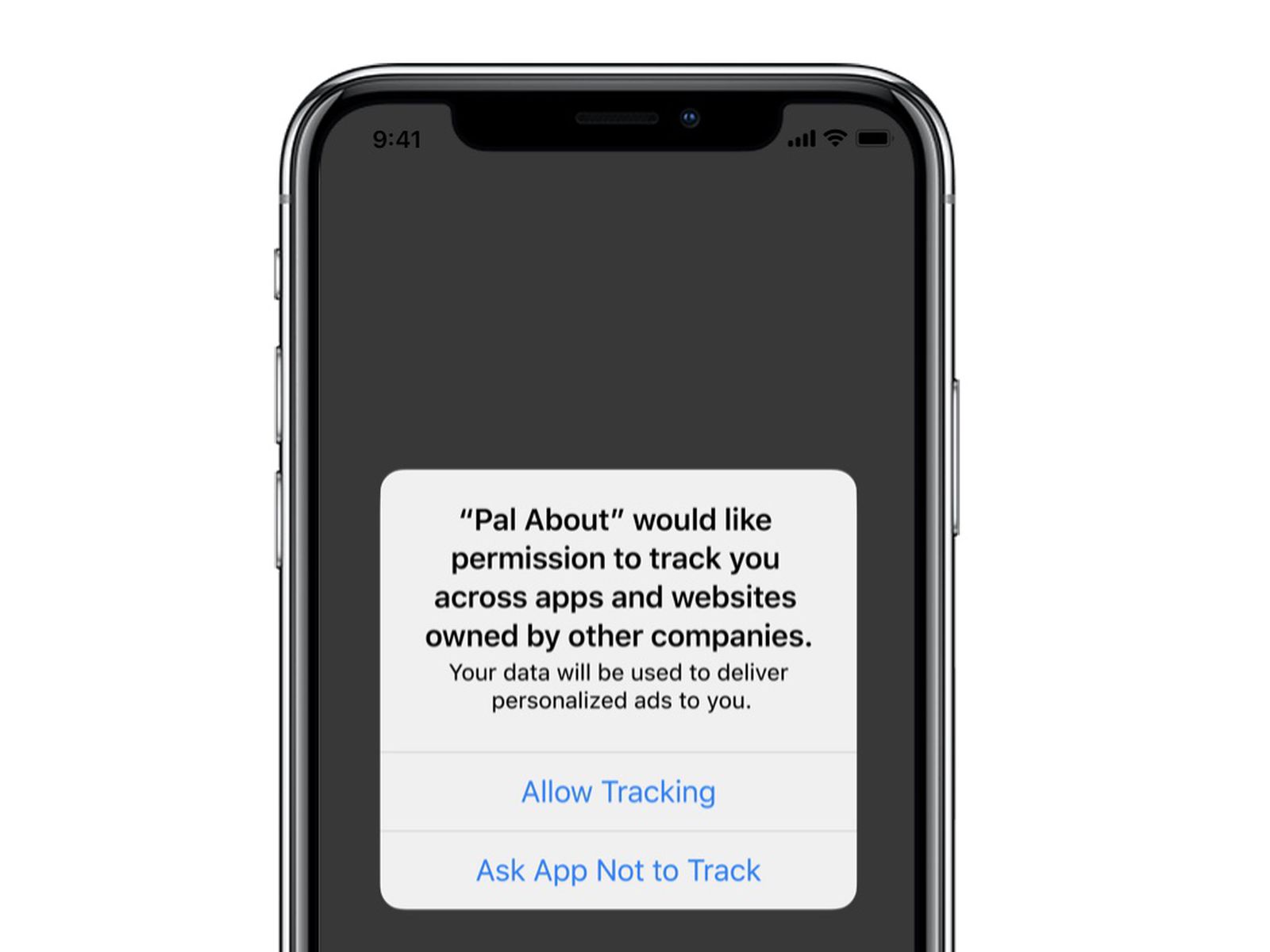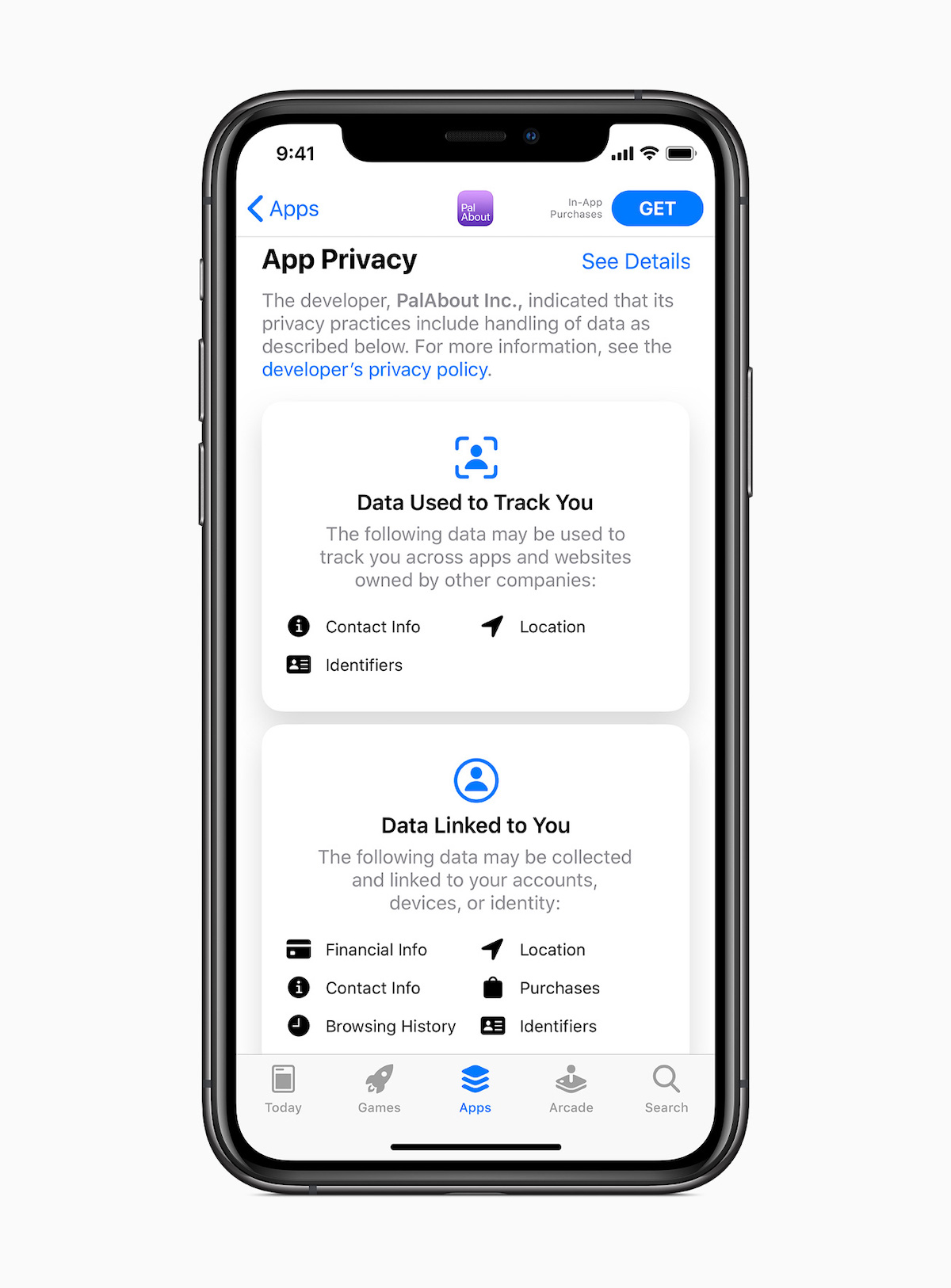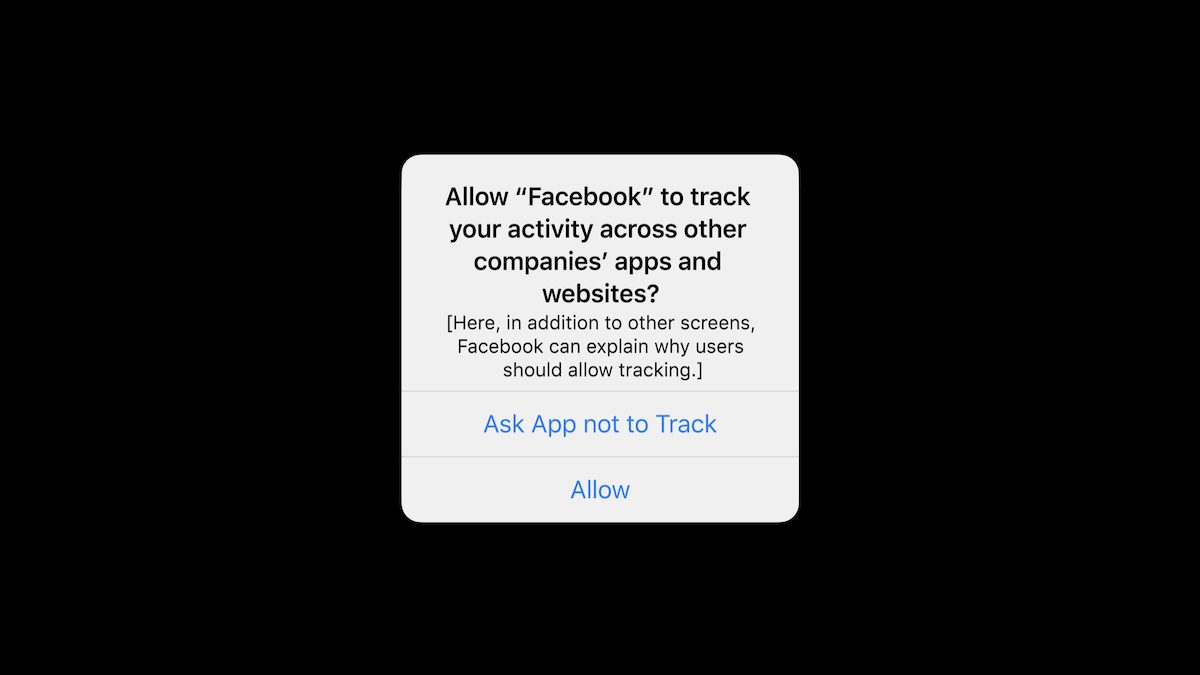ATT privacy feature for iOS 14 is scheduled to release in 2021 and as the launch date is coming closer, advertisers are publically expressing concerns. CNBC reports that various advertisers are accusing Apple of changing the mobile ad business model and not providing clear instructions of what is acceptable. The Cupertino tech giant has warned violators that their app will be removed from the App Store if they are found tracking users without their consent. Therefore, advertisers are asking Apple to precisely define the acceptable way to track users for targeted ads.
Currently, advertisers like Facebook and Google, tracker users across other apps and websites to run targeted ads. Often users’ information is copied and stored without their knowledge and in the wrong hands can be detrimental for them. Therefore, to give users more control over their data, Apple is going to launch the App Tracking Transparency (ATT) update which allows users to opt-out of app tracking across other platforms.

Ad industry complains of lack of clarity ahead of ATT privacy feature launch
The report states that many advertisers in the mobile ad ecosystem are accusing Apple of not providing “clear” guidelines related to new IDFA (Identifiers For Advertisers) rules and claim that the new ATT privacy feature will hurt the revenue capacity of the mobile ecosystem, especially for the small businesses.
“Apple “dumped 10,000 puzzle pieces on the floor and walked away” after first announcing the change, says Eric Seufert, an analyst and owner of website Mobile Dev Memo. “After some of that time, some of them have been combined, so the picture is a little clearer. But he said Apple was still slow at first about any kinds of clarifications.
In the absence of clarity and instruction from Apple, the ad tech industry just ran away with these insane fantasies about how they were going to be able to sidestep this,” Seufert said. He said many companies didn’t make any progress in the course of months where they didn’t have clear enough direction. Apple did issue a number of clarifications this fall about what would not be allowed.”
Identifiers For Advertisers (IDFA) is an iPhone tracking system that generates a unique code for every model to allow advertisers to run targeted ads without personally identifying the information to the user. However, it has been found that apps often records users’ personal information like passwords and credit card numbers copied to the clipboard, and access their photos, camera, and microphones to listen to their conversations without their knowledge. Therefore, Human and Digital rights organizations around the globe have raised concerns over this invasive tracking system and have called on Apple to protect users’ privacy by dismembering the IDFA system.

Because of its own commitment to users’ privacy and mounting pressure to protect users’ data, Apple released new iOS 14 privacy features at WWDC 2020 event but launched the latest version of the software without ATT privacy update in September. The ATT privacy update was pushed to early 2021 release time in order to give developers time to re-build their apps in compliance with the new IDFA rules; which many have not still and fear violation may lead to removal from Apple’s digital marketplace.
Seufert said he believes most companies today understand fingerprinting won’t be allowed.
Certain methods that use signals from a consumer’s phone to measure or analyze but aren’t strictly referred to as fingerprinting can get into a grayer area. Apple says in its policies that companies can’t derive data from a device for the purpose of uniquely identifying it. Some in the ad industry see any potential workaround that could still identify a device as a potential violation of Apple’s new policies.
But some players say they are still trying to identify devices with methods that are privacy-conscious enough or anonymous enough to follow the guidelines. Some industry players say their methods will comply with Apple guidelines because they are only using that data for their clients and aren’t selling that data or using it for other purposes, or because they’re using algorithms to examine broader campaigns and not specific users.
It’s still unclear how Apple will police those methods, leaving the window open for companies attempting any kind of workaround to face consequences or pushback from Apple.

Advertisers may hew and cry, but Apple seems very firm on the decision to launch its ATT privacy update. Apple’s Head of Software, Craig Federighi has warned developers to follow iOS 14 anti-tracking rules and has explained that adaptation will be beneficial for the ad industry. Speaking at the 10th Annual European Data Protection & Privacy Conference, Federighi dismissed the opposing arguments as “outlandish” and said like ITP, ATT privacy feature will be good for the mobile advertising ecosystem.
The biggest and strongest opposition to the ATT privacy feature is from Facebook. Recently the social media company has launched an ad campaign accusing Apple of damaging small businesses by disallowing app tracking across platforms. The ads are published in the same newspapers which have recently joined CAF against Apple; coincident or planned? Personally, it seems like Apple is fighting for users’ privacy while others are attacking it to make money by invading it. What is your opinion, let us know in the comments.
Read More:
12 comments
Comments are closed.